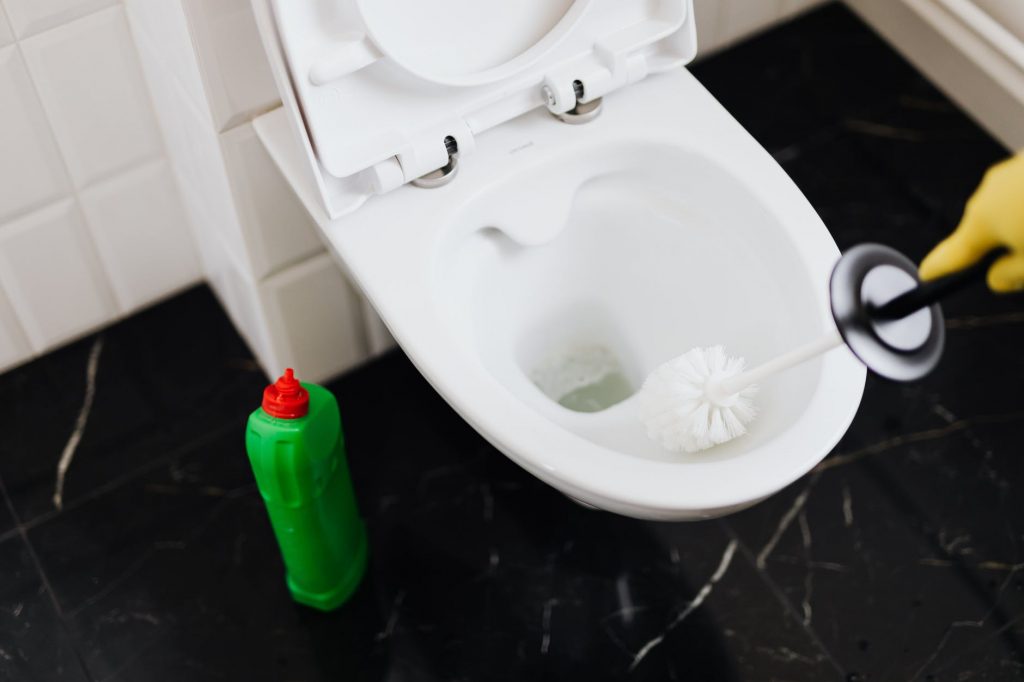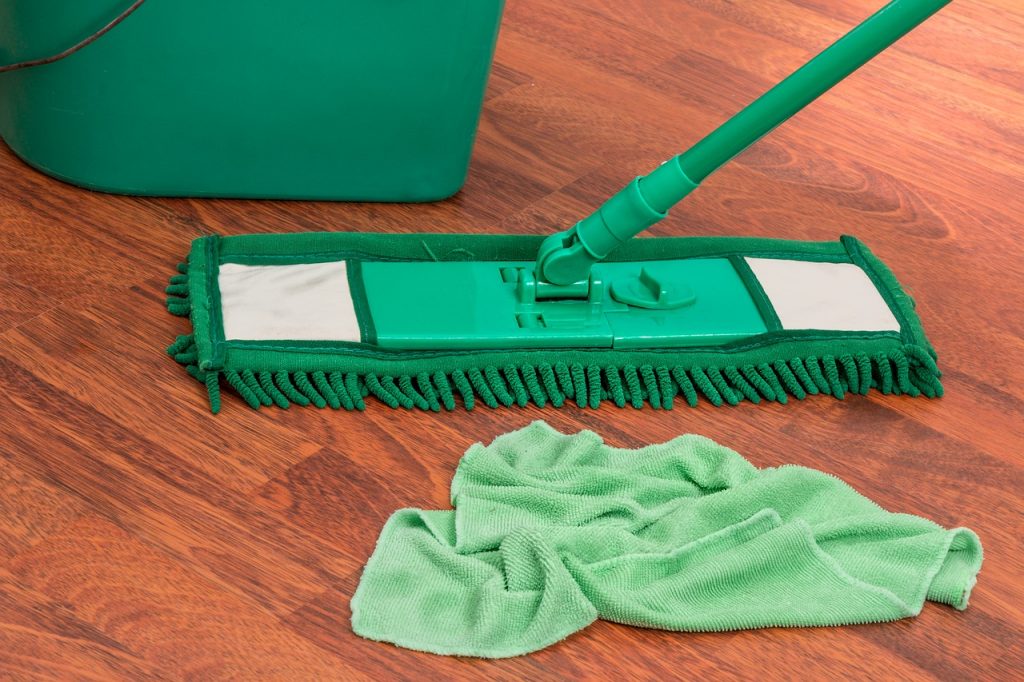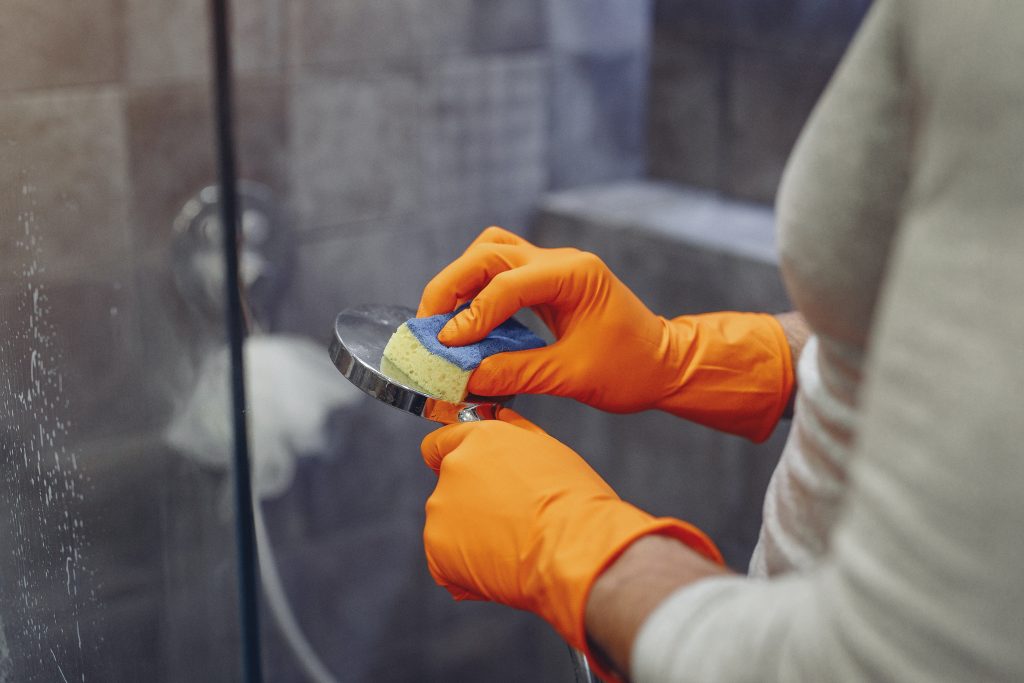House cleaning tips do enhance your endeavors when you are looking to clean any part of the house. But, before we go further lets see what the world of today has to offer.
Outbreak of COVID-19:
The biggest pandemic of the century is happening right now. In the start, there was a shortage of house cleaning products and sanitizers in the markets though local and large-scale manufacturers overcame the deficit.
Ever since the outbreak of this deadly virus, whole world is in crisis. As all the experts worldwide are encouraging personal hygiene and house cleaning tips to shield yourself and others from the virus.
If you are the one taking shelter at home during the outbreak, you might be wondering for house cleaning practices. Other than person to person transmission, surface transmission has also been a major cause in the spreading of this virus. Keeping the high touch surfaces free from the germs will help you fight the virus effectively.
Necessity of House Cleaning:
The good vibe a clean house gives is definitely indescribable. A clean house looks like heaven and most importantly it feels peaceful. Although keeping the house clean in the daily grind can be a task. But in the long run these little efforts towards house cleaning has a lot of advantages. Keeping the house clean is very important for several reasons:
Clean house to Maintain Hygiene:
The first and the most important reason is the hygiene. Hygienically it is essential to live in a clean and neat house. Cleaning is the only way you can get rid of all the germs from your house and it surely leads you to a healthy lifestyle saving you from many diseases.
House Cleaning for Care of Children:
For people who have little ones at their homes, they should be the ones who requires most care. Children tends to explore by touching and tasting things all around themselves. Thus, they are most likely to get in contact with germs and bacteria. So, it is important that you should practice house cleaning regularly. More specifically, it is really important to keep children’s toys clean.
Other benefits of clean house:
- For staying organized, motivated and more productive cleaning plays a role. With a clean home, you will spend less time in sorting things and will find everything in the right place.
- Knowing your house is clean, leads you to have a good sleep. Nothing can beat the joy of jumping on the bed with clean sheets after a long tiring day.
If you make house cleaning a habit, then you will only need deep cleaning once in a week or a month. However, for people who don’t get enough time for deep cleaning.
There are many professional cleaning services, which you can hire. They provide your home with advanced disinfecting services which will assure that you have protection from all kind of germs. From cleaning the garages to washroom tubs, in short they cover every little detail of your house.
Essential House Cleaning and Disinfecting Tips:
Home cleaning plays an eminent role when you are looking to maintain a healthy lifestyle. Some people even hire professional cleaners just to serve this very purpose. Here are some house cleaning tips using which you can easily clean your house.
How to Clean Your Toilet Thoroughly:
Cleaning a toilet can be one of the most unpleasant tasks in your day, but it is an integral part of the daily house cleaning routine. The main reason toilet cleaning gets ignore quite often. A dirty toilet will smell bad, look bad and can breed germs.
With some basic tools in your house, you can easily clean it. All you need is a pair of rubber gloves, toilet brush cleaner, sanitary wipes, toilet bowl cleaner and bleach.
- Wear your gloves and start by applying the cleaner to the bowl and squish it around the bowl with the help of toilet brush.
- While the cleaner soaks, disinfect the exterior toilet either by sanitary wipes. Don’t forget those hard to see areas; back of the tank, base of the toilet with the help of sponge.
- Now get back for cleaning the bowl. For hard stains, you can use a pumice stone.
- Beware of any leakage as it may cause a water damage to the toilet and that can ruin all the efforts you have done to keep your toilet clean.
As a last step don’t forget to clean your supplies. Also, once in a while clean the shelves inside the toilet.

Image credit pexels.com
Best Way to Clean Hardwood Floors:
Hardwood floors brings an indescribable beauty to your home. They are more durable and if handled with proper care they last for decades. Though these floors do require a regular cleaning. But don’t worry because here are simple house cleaning tips that will assure that your floor looks all clean and tidy.
If you don’t want to clean them yourself then you can hire a professional cleaning company.
- Before washing the floor directly, use a vacuum cleaner to remove dirt, pet hairs or other debris.
- Now, you can use a surface cleaner and mix its some drops in a tub of hot water.
- Mop the floor with this cleaning mixture you made.
Furthermore, for deep cleaning you can wash the floor and let it dry.

Image credit pexels.com
Cleaning Tips for Appliances, Gadgets & other things:
As a matter of fact, cleaning electronic gadget can be a pain. However, using these easy house cleaning tips for cleaning appliances you will be able to clean them in no time.
How to Clean Your Cell Phone:
Nowadays, phones are one of the most important possession one has. From your bed to your working place, you have it everywhere. Thus, it can be a culprit for spreading diseases. However, it has now become a necessity to disinfect your phone once or twice in a week.
Here are some easy tips you might consider while cleaning your cell phones.
- First of all, unplug your phone attachments like charger, ear plugs etc.
- Power off your mobile and remove the cover your cell is wearing.
- Then, gently clean the surface of your phone with a microfiber cloth or a disinfecting wipe. This will assure that you have remove most of the germs from the exterior parts.
- For the cleaning of accessories, you can use wipe, cotton buds or a towel. Just make sure they are completely dry before you use them.
- Now it’s the turn to clean your phone case’s cover. You can make a solution by adding a luke warm water in a bowl and then add a small amount of dish-washing liquid in it. Soak the cover in the bowl for few hours and you will find them clean and disinfected.

Image credit pixabay
How to Clean a Keurig:
Bacteria usually look for damp and warm places to grow. Indeed, Keurig provide such favorable conditions. Over time, calcium deposits or scale settle inside the coffee maker and descaling should take place once after 3 months to ensure long term health of your Keurig.
You can either clean the coffeemaker on your own or you can send it to a full-service cleaning company. If you’re cleaning it yourself then you just need soap, white vinegar, water and a clean dry cloth.
- First, unplug the machine to assure safety.
- Then, disassemble the machine.
- For exterior part of the machine, wipe it with a dry cloth.
- Now for descaling fill the water reservoir halfway either with vinegar or a descaling solution.
- Fill the rest of it with water.
- Then run the machine until the reservoir is empty.
- After, it is empty now repeat the process with plain water to remove any vinegar residual left inside.
How to Clean Keyboard:
The cleaning of a keyboard depends on the type of keyboard you are using. To clean a desktop keyboard, in fact rules are pretty simple. First of all, you have to make sure that while cleaning the keyboard you remove from the power.
To clean a keyboard, you need; microfiber cloth, disinfecting wipes and compressed air.
- To clean the surface of the keyboard, firstly use a cloth to remove the dust from the surface.
- For deep cleaning of the keyboard you need to remove the dust inside the key caps. After removing key caps, you can either use wipes to disinfect it or compressed air to blow the dust away.
- Now clean the sides of the keyboards with a cloth.
- Don’t forget the keyboard’s cable and make sure you allow it to dry before plugging back into the system.
How to Clean Your Shower Head:
Is your shower head has also changed its performance like it used to? With a certain time, the mineral buildup might reduce the efficiency of the shower head. It is the main cause behind clogged spouts and uneven water flow. To clean the shower head, you can use vinegar which also acts as a wonder in the cleaning process.
- Partially fill a plastic bag with vinegar.
- Place the bag with shower head such that its head submerges in the bag.
- Carefully fasten the bag on the neck of the shower head with the help of string.
- Let the shower soak for several hours.
- Finally untie the bag and drain the vinegar in the shower drain, after that run the warm water to flush out any mineral deposits left inside.

Image credit pexels.com
How to Clean White Sneakers:
The trending fashion of white shoes has made it a wardrobe staple for both men and women. As much as you love wearing white shoes, it is difficult to keep them clean and tidy. Here is a simple hack that you can easily do at your home to clean your white shoes. All you need is baking soda and white vinegar to get grime out of your canvas.
- Mix a tablespoon of baking soda with two drops of vinegar in a bowl of hot water.
- Now dip a cloth or an old tooth brush into this bowl and start scrubbing your shoes.
- The stains will remove gradually once you start scrubbing and this is one of the most effective method in the cleaning of sneakers.
How to Clean Bed Pillows:
Cleaning pillows has the same importance as cleaning your sheets and covers. Since you rest your head on pillow, you have to be sure that they are clean and tidy. Most of the pillows are machine washable, some can be dry cleaned only. However, placing your pillows in sunlight once in a week can beat all the germs it has.
For machine washable pillows:
- Select the gentle cycle and then add on cold water rinse and spin cycle.
- Add a small amount of detergent.
- Dry them on low heat, turning them often. After that keep the pillows in sunlight for few hours to avoid stench.
For pillows such as foams one that cannot put directly in the washing machine:
- Remove pillow cover and wash them according to the tag.
- Then, spin it in the machine on a casual cycle with hot water.
- To remove dust, you can also use a vacuum cleaner.
- Let the pillow to dry completely before you start to use it again.
Why disinfect your sponges in the microwave?
The hype about disinfecting the sponges in the microwave has proved that the process is worth it. It is surely the easiest possible way to disinfect your sponges. The heat of the microwave beats the germs that the sponge has.
But in this disinfecting process you might take care of a few things:
- The sponges should be wet.
- They should not contain steel or plastic inside them.
- Two minutes are enough to kill maximum germs inside.
- You should not take it out quickly as they may have become hot.
How to Steam clean your microwave:
Microwave is all time favorite appliance for all of us. The one who eases our daily routine so much. We definitely don’t know its worth until we don’t have one. But the thing is this appliance also needs cleaning.
- Prepare a solution by adding two tablespoon of baking soda in a microwave safe bowl having water in it.
- Microwave the solution for 2-4 mins. The steam inside will help removing the grease and debris inside.
- Now carefully take out the bowl from the microwave.
- Wipe down the microwave with the help of a wet sponge.
- For exterior part, use a paper towel to remove the dirt. Moreover, use a glass cleaner for a clean shiny glass.
Disinfecting Against COVID-19: Why it is important?
As we all know, we all are suffering from the biggest pandemic of the century. Only following some simple house cleaning tips can save a lot of lives. Little efforts from every single person counts a lot. It all starts from cleaning and disinfecting your households. You can do the disinfecting of your house yourself or can take the help of advanced disinfecting services.
Here are some of the reasons why disinfecting your home is important:
- The virus can stay on the surface from few hours to several days. Some common high touch surfaces include: door knobs, taps, kitchen and bathroom slaps, remote controllers etc. Disinfect these surfaces regularly by using disinfecting wipes or you can make a solution at home by yourself.
- For soft porous surfaces, such as carpeted floors, rugs etc. First remove visible contaminations and then clean as per instructions given on the product.
- Moreover, also disinfect the electronics in your house. Disinfect them according to the instructions written and you can also use alcohol wipes.

Conclusion:
Keeping your house clean and organized is not that scary as you might be making it. Just some little daily efforts count a lot. People don’t need to go overboard with cleaning, regular cleaning can clear away variety of germs. Once you create a successful house cleaning routine, it will no longer feel like a burdensome task. In fact, you will get used to it and enjoy doing it. And you will never leave your house messy again by following these cleaning tips.





